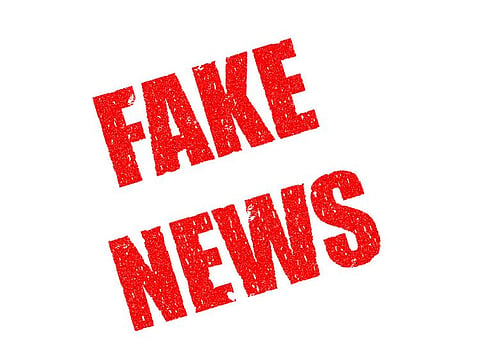Fake news: Child’s abduction by nanny in UAE is untrue, says police
Umm Al Quwain Police made a public announcement after rumours spread about a childcarer

Dubai: Residents were left on high alert after messages circulating across social networking sites claimed that a nanny had abducted a young girl in the UAE.
After the information spread like wildfire across the emirates all the way from Ras Al Khaimah to Abu Dhabi, Umm Al Quwain Police took to its official social media accounts to dispel the inaccurate reports.
In a statement, the police announced: “The General Command of Umm Al Quwain Police denies receiving any report that a young expatriate girl was kidnapped by an Ethiopian nanny. We urge the public not to spread false information and to always verify the news with official sources.”
The Ministry of Interior has carried out frequent campaigns during the year to prevent the spread of rumours on social media, as they can harm society.
Lt Colonel Awadh Saleh Al Kindi, from the 999 Magazine, was quoted as saying: “There have been cases in the past where residents caught using social media to spread malicious rumours faced jail term or fine, or both. The UAE authorities will seriously deal with false news spread via social media harming UAE society.
“While in the past spreading of information happens through word of mouth, the massive power and influence of social media has changed the communication landscape and the misuse of social media can virtually spread mass fear in a click of a button.”
He also encouraged residents to educate themselves first and verify any information they received.
Dh1 million fine
Under Federal Legal Decree No 5 for 2012 on combating cybercrimes, spreading rumours “damaging social peace and public order” and causing damage to “national peace” empowers the UAE government to prosecute concerned individuals.
Article 29 of the Federal Legal Decree No 5 for 2012 states those proven guilty face imprisonment and a civil fine not exceeding Dh1 million.
Covered by the law are messages or posts spread by electronic means, through email, SMS, WhatsApp, Facebook or any other online platform or information technology tool.
The law also does not only penalize fake news. Even if the information posted online is true, the person sharing it can still be held liable if someone else’s privacy has been violated.
Sign up for the Daily Briefing
Get the latest news and updates straight to your inbox



